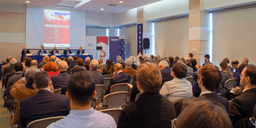
Policy Note / Nilgün Arısan Eralp, Prof. Dr. Sanem Baykal, Leyla Karakaya, Assoc. Prof. Dr. Çiğdem Nas, Bengisu Özenç, Güven Sak
Turkey-European Union (EU) relations may have had a convoluted and complicated trajectory, but it is probably fair to say that the two parties have reached a degree of integration and interconnectivity that would allow neither side to run the engagement into the ground. Embarked on more than 60 years ago with the eventual prospect of full membership, these relations have encountered many ebbs and flows, were often stalled and hindered, and have yet to come to fruition in terms of their ultimate prospect. The impasse in the relationship has become a nuisance in the light of the numerous issues and concerns, so much so that EU has recently come up with the notion of a Positive Agenda, one that will create the semblance of a functioning partnership.
The one aspect that has materialized and matured within the scope of the relations, however, has been the Customs Union (CU), which was concluded and launched 25 years ago. It appears now that the time has come to update and modernise that aspect of the relationship in line with the decarbonization agenda of the EU.
This paper argues that CU modernisation, in line with the changing imperatives brought along with the Green Deal, provides a concrete step in preparing the ground for a positive agenda, better collaboration and potentially deeper integration in Turkey-EU relations amid the drastic overhaul of the global economic and political order. Indeed, the EU Green Deal, initiated in 2019 and solidified in 2021, has rendered the basis provided by the initial proposals regarding both CU modernisation and the “Positive Agenda” inadequate and imbalanced. We believe that updating the CU in line with the Green Deal will pave the way for much-needed stability, trust, and a non-binary/positive-sum perspective of interest for improved communication and cooperation.
You may read policy note from here.






